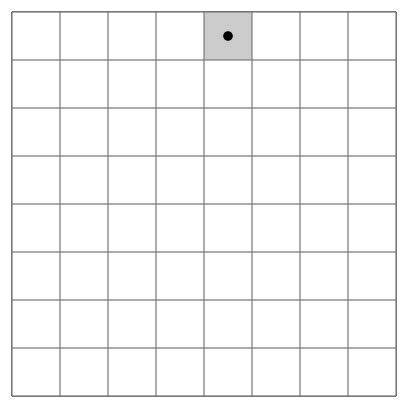Introduction
Chess is a board game for two players, called White and Black, each controlling an army of chess pieces, with the objective to checkmate the opponent's king. It is sometimes called international chess or Western chess to distinguish it from related games such as xiangqi (Chinese chess) and shogi (Japanese chess). The recorded history of chess goes back at least to the emergence of a similar game, chaturanga, in seventh century India. The rules of chess as they are known today emerged in Europe at the end of the 15th century, with standardization and universal acceptance by the end of the 19th century. Today, chess is one of the world's most popular games played by millions of people worldwide.
Chess is an abstract strategy game that involves no hidden information and no elements of chance. It is played on a chessboard with 64 squares arranged in an 8×8 grid. At the start, each player controls sixteen pieces: one king, one queen, two rooks, two bishops, two knights, and eight pawns. White moves first, followed by Black. The game is won by checkmating the opponent's king, i.e. threatening it with inescapable capture. There are also several ways a game can end in a draw.
Organized chess arose in the 19th century. Chess competition today is governed internationally by FIDE (the International Chess Federation). The first universally recognized World Chess Champion, Wilhelm Steinitz, claimed his title in 1886; Ding Liren is the current World Champion. A huge body of chess theory has developed since the game's inception. Aspects of art are found in chess composition, and chess in its turn influenced Western culture and the arts, and has connections with other fields such as mathematics, computer science, and psychology. (Full article...)
Selected article -

In chess, there is a consensus among players and theorists that the player who makes the first move (White) has an inherent advantage, albeit not one large enough to win under perfect play. This view has been the consensus since at least 1889, when the first World Chess Champion, Wilhelm Steinitz, addressed the issue, although chess has not been solved.
Since 1851, compiled statistics support this view; White consistently wins slightly more often than Black, usually scoring a winning percentage between 52 and 56 percent. White's advantage is less significant in blitz games and games between lower-level players, and becomes greater as the level of play rises; however, raising the level of play also increases the percentage of draws. As the standard of play rises, all the way to top engine level, the number of decisive games approaches zero, and the proportion of White wins among those decisive games approaches 100%. (Full article...)General images
Selected image
FIDE world ranking
| Rank | Player | Rating |
|---|---|---|
| 1 | 2829 | |
| 2 | 2795 | |
| 3 | 2780 | |
| 4 | 2778 | |
| 5 | 2777 | |
| 6 | 2771 | |
| 7 | 2752 | |
| 8 | 2752 | |
| 9 | 2750 | |
| 10 | 2748 | |
| 11 | 2748 | |
| 12 | 2746 | |
| 13 | 2745 | |
| 14 | 2745 | |
| 15 | 2741 | |
| 16 | 2734 | |
| 17 | 2734 | |
| 18 | 2732 | |
| 19 | 2732 | |
| 20 | 2731 |
Top 10 WikiProject Chess Popular articles of the month
Did you know...
- ... that Magnus Carlsen, the current World Chess Champion, resigned a recent tournament game after only one move?
Reviewed articles
Featured pictures
Chess from A to Z
| Index: | A B C D E F G H I J K L M N O P Q R S T U V W X Y Z (0–9) |
| Glossary: | A B C D E F G H I J K L M N O P Q R S T U V W X Y Z |
Topics
Subcategories
Related portals
Related WikiProjects
WikiProject Chess
WikiProject Go - WikiProject Sports and games biographyAssociated Wikimedia
The following Wikimedia Foundation sister projects provide more on this subject:
-
 Commons
Commons
Free media repository -
 Wikibooks
Wikibooks
Free textbooks and manuals -
 Wikidata
Wikidata
Free knowledge base -
 Wikinews
Wikinews
Free-content news -
 Wikiquote
Wikiquote
Collection of quotations -
 Wikisource
Wikisource
Free-content library -
 Wikiversity
Wikiversity
Free learning tools -
 Wiktionary
Wiktionary
Dictionary and thesaurus
Sources
-
 List of all portalsList of all portals
List of all portalsList of all portals -
 The arts portal
The arts portal -
 Biography portal
Biography portal -
 Current events portal
Current events portal -
 Geography portal
Geography portal -
 History portal
History portal -
 Mathematics portal
Mathematics portal -
 Science portal
Science portal -
 Society portal
Society portal -
 Technology portal
Technology portal -
 Random portalRandom portal
Random portalRandom portal -
 WikiProject PortalsWikiProject Portals
WikiProject PortalsWikiProject Portals



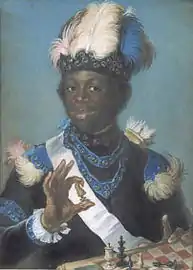
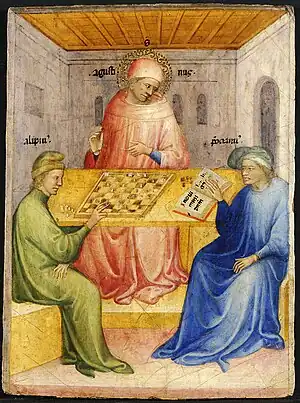
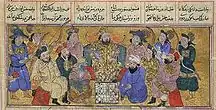
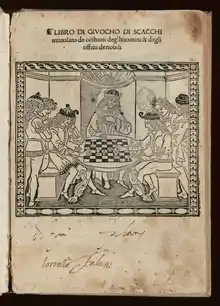
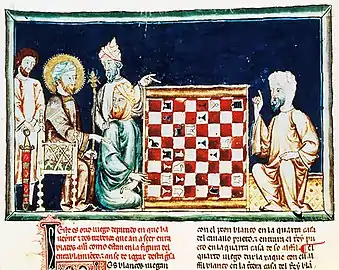
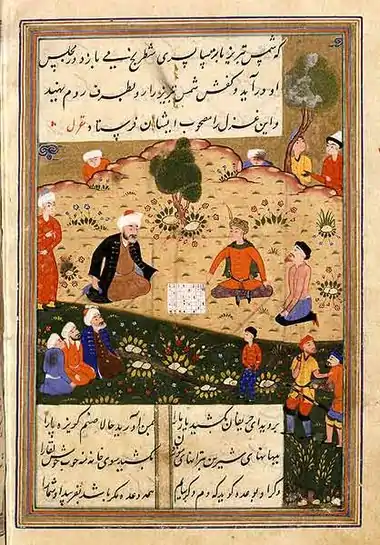

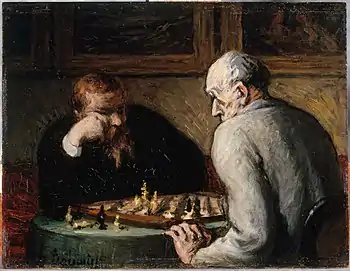



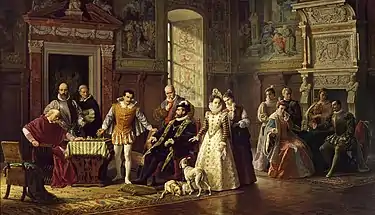

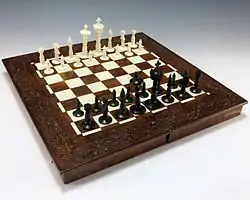

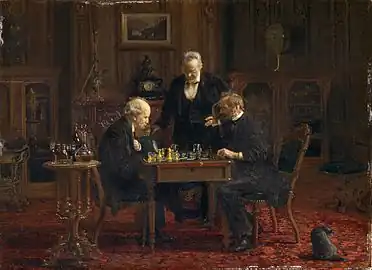
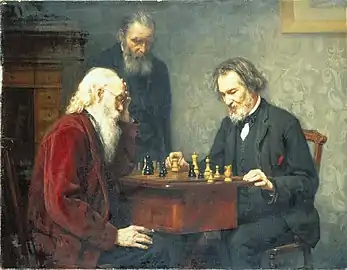
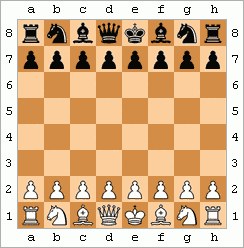
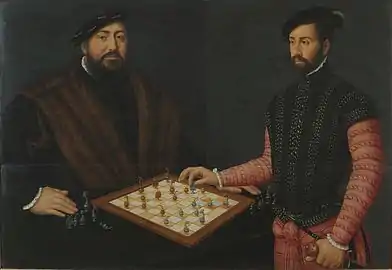
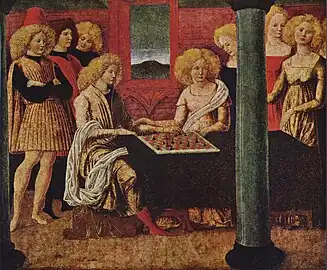
.jpg.webp)
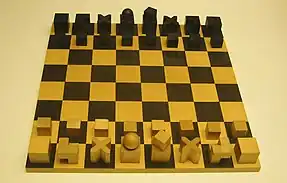
_gegen_Fischer_(USA).jpg.webp)

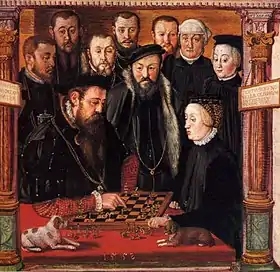
.jpg.webp)
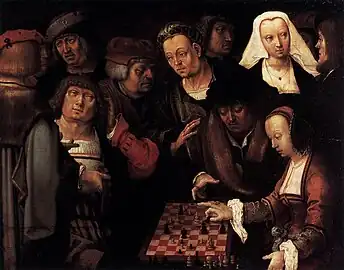

.jpg.webp)



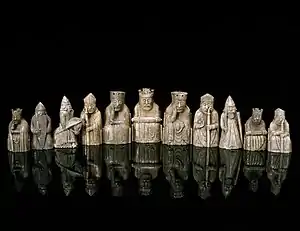

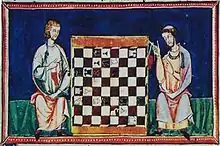
.jpg.webp)



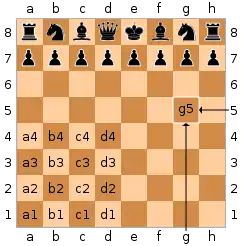

_crop.jpg.webp)
.jpg.webp)


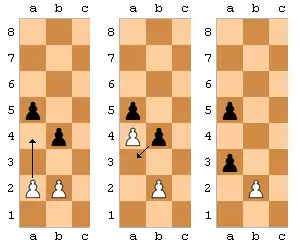
_(cropped)_2.jpg.webp)



_(cropped).jpg.webp)
